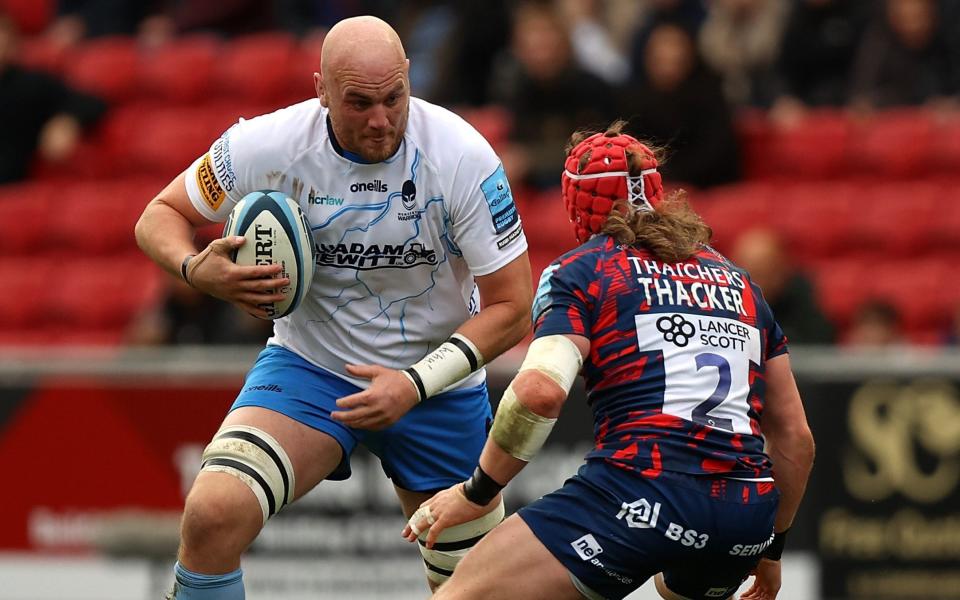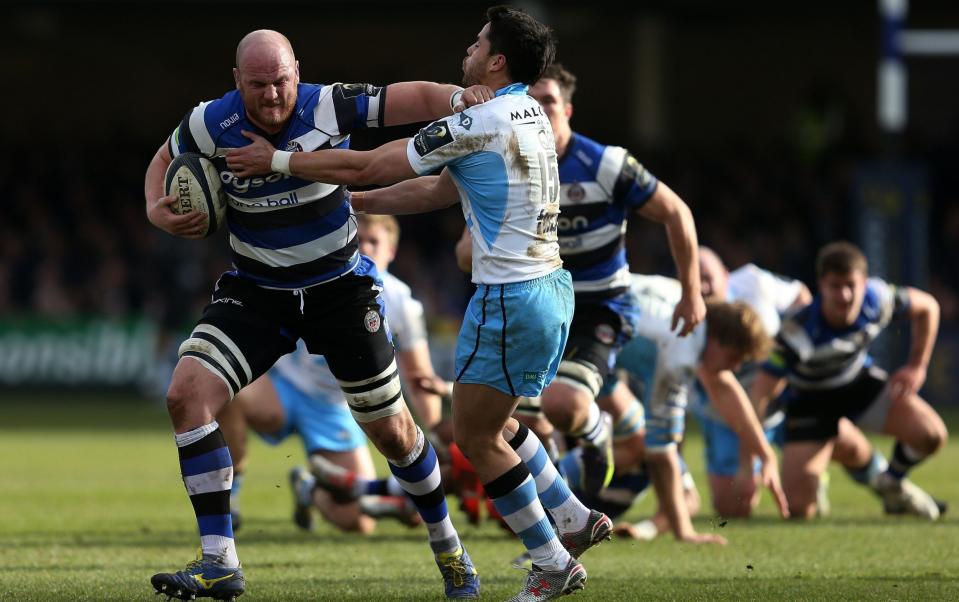Matt Garvey interview: Rugby needs to stick up for its 'squeezed' middle earners

Matt Garvey cannot apologise enough. The 34-year-old sheepishly admits that this chat had to be rearranged. He thought his English bulldog, an RSPCA rescue called Poppy, was due at the vet for booster jabs tomorrow. As it turns out, the appointment was earlier today.
Thirteen years in professional sport will institutionalise you. Emerging into the ‘real world’ brings challenges, time-keeping among them. Garvey’s playing days in rugby union came to what he calls a “natural” end last season. At the start of this month, a new chapter began with the Rugby Players’ Association.
Previously a versatile, tough back-five forward, Garvey is now working as a development officer for Bath and Bristol Bears. Excel spreadsheets and introductions have been recurring themes of his first weeks in the saddle. Rich experience in the game, both positive and difficult, means few are better qualified to support players.
“As I said in both of my interviews for this job, sport is different for everyone but I have seen a lot at first-hand,” Garvey explains.
“I went to university, I’ve been an academy player and a senior player. I’ve moved clubs, I’ve been a club captain. I’ve seen how clubs operate behind the scenes, I’ve had injuries that I thought would be career-ending, I’ve had contracts pulled away from me.”
Those are just broad brushstrokes. Garvey represented London Irish, Bath, Gloucester and, finally, Worcester Warriors on the way to accumulating well over 200 appearances at senior level. A move to France was derailed by a failed medical due to a history of neck operations.

Some years ago, a bout of avascular necrosis, effectively a situation where bone tissue in his ankle was dying after becoming cut off from blood supply, caused “panic to sink into his stomach”. His switch to Gloucester, following his release from Bath amid the “carnage” of Covid, was initially on a three-month deal – highly unsettling with a mortgage to pay and a young family to look after.
Ed Slater is a former colleague of Garvey’s at Gloucester. The pair packed down together in the second row and have children of similar ages. Like many around the world, Garvey describes himself as “rocked to the core” by Slater’s MND diagnosis and is eager to help in any way possible. That gut-wrenching news underlined the fragile and fickle nature of life, never mind rugby.
One near-constant of Garvey’s career feels pertinent in the current landscape. By his own admission, he spent most of the past 13 years occupying the middle tier of earners in various squads. Generally speaking, this area has been squeezed by clubs’ management of the salary cap for some time.
'Middle earners are on less than they are worth – but they play every minute'
Veterans have been left scrambling for jobs and the unveiling of next season’s Premiership fixtures emphasised a central irony. England regulars will be available on a maximum of 11 out of 24 league weekends in 2022-23 because of rules on resting them after a tour, as well as a final scheduled almost a month earlier in order to finish the campaign prior to a World Cup summer. Who picks up the slack? Garvey has a good idea.
“Covid was an eye-opening period as far as how the game runs itself and who it is controlled by and the people that make decisions,” he says. “I don’t think they always take into account the knock-on effect further down the ladder.
“I think everyone looks at rugby players from the outside and think they earn lots of money. Some players do, but the salary cap has been reduced and if you have players that are in the England team or have toured with the Lions, they are earning x. Players on the fringes of international squads are looking for an increase because they will soon be an international player. Where does the extra money come from?
“It means the guy in the middle gets squeezed, and probably earns a lot less than they’re worth. You have top-earners and then academy kids who are not earning a lot of money at all. It was a long time ago but my first contract was for £12,000 a year.
“The guys in the middle being squeezed are earning less and are the ones now finding themselves out of contract… but then they’re also the ones, if they are getting a contract, that are depended upon by the clubs, when the internationals go, to play every minute and train every session.”
Clearly, there are balls to be juggled. Anthony Watson recently lamented how England players are starting to be lowballed. This is the other side of the coin.
“I wasn’t an international,” Garvey adds. “I was a club player. I had seven operations and injuries that were considered potentially career-ending. I retired at a point where I was thinking: ‘I want to be able to kick a ball around the park with my kids’.
“I want to be an active dad for the next 20 years. I feel like people are putting their bodies on the line and not getting the rewards they should because the means and the decisions made are not allowing that.”
Of the myriad scenarios that might perplex and stress professional players, from non-selection to fitness setbacks via disagreements with coaching staff, Garvey has seen most of them. Truly passionate about the game, he is relishing the opportunity to relate to and assist players.
“Everyone aspires to play at the highest level they can but it doesn’t happen for everyone. I want to be approachable and to be able to look after players.”
Authenticity is obviously another of Garvey’s attributes. You do not doubt that any advice will be delivered with honesty and empathy.

 Yahoo Sports
Yahoo Sports 